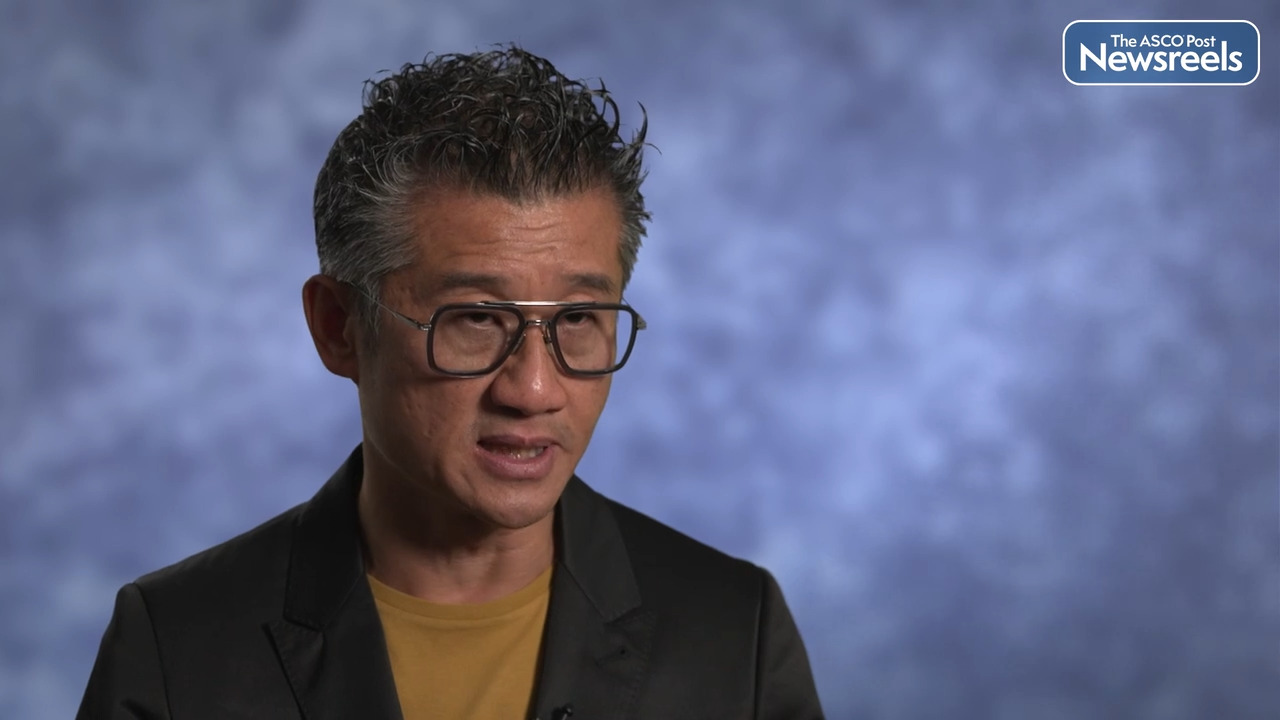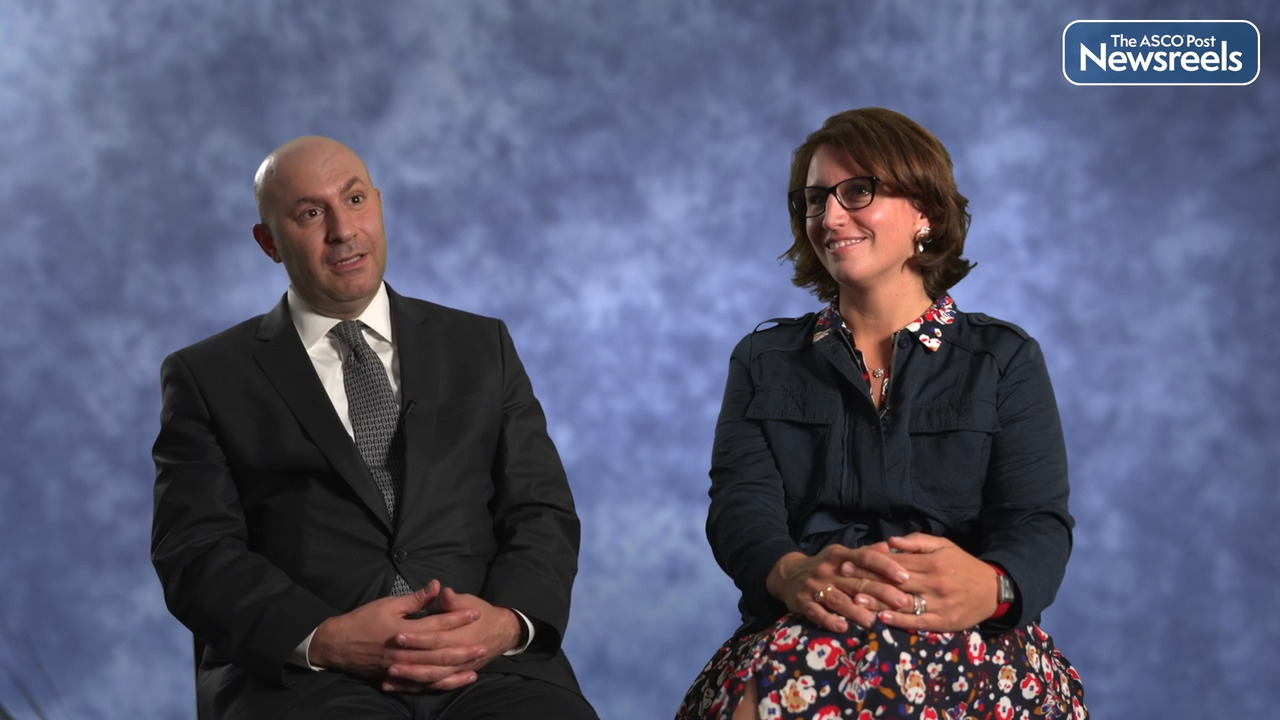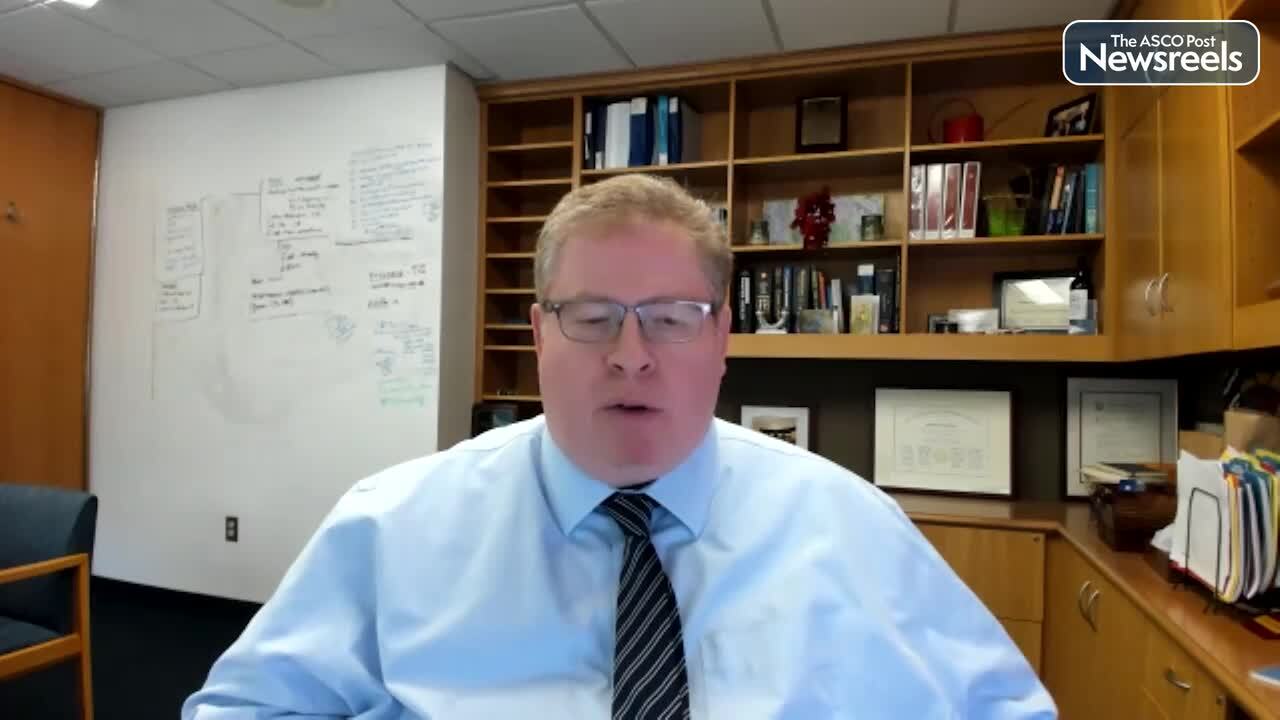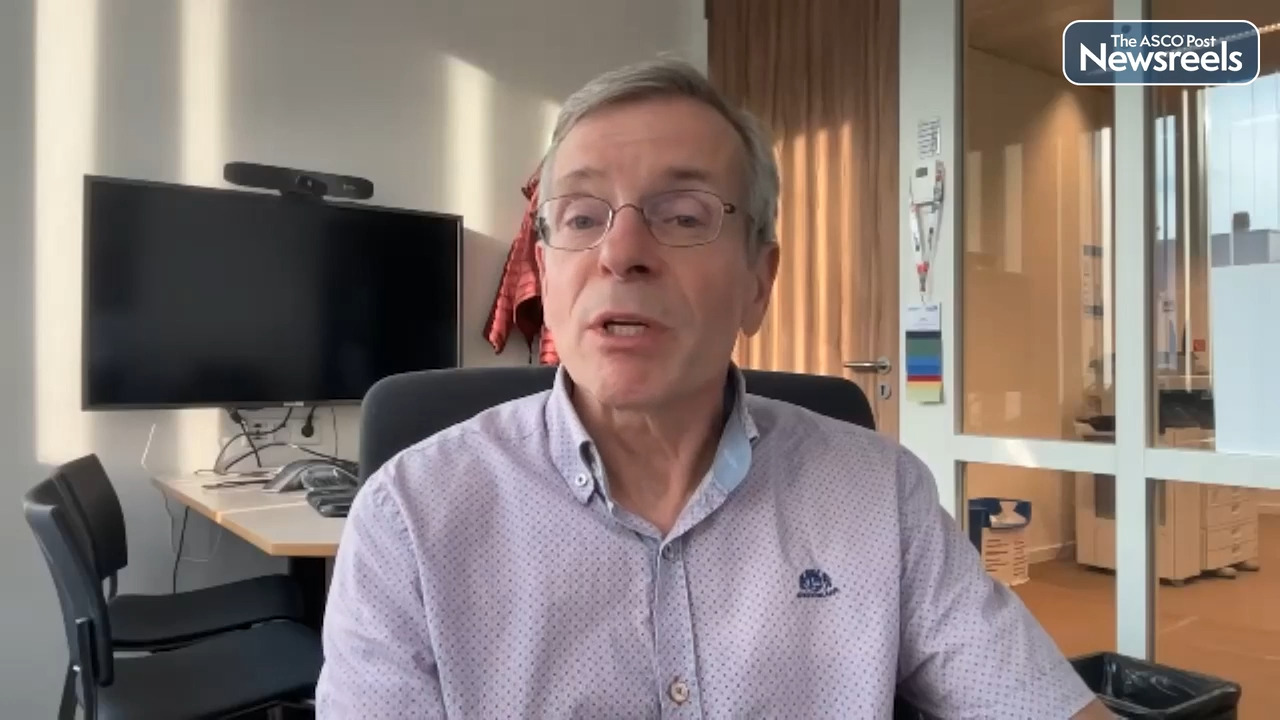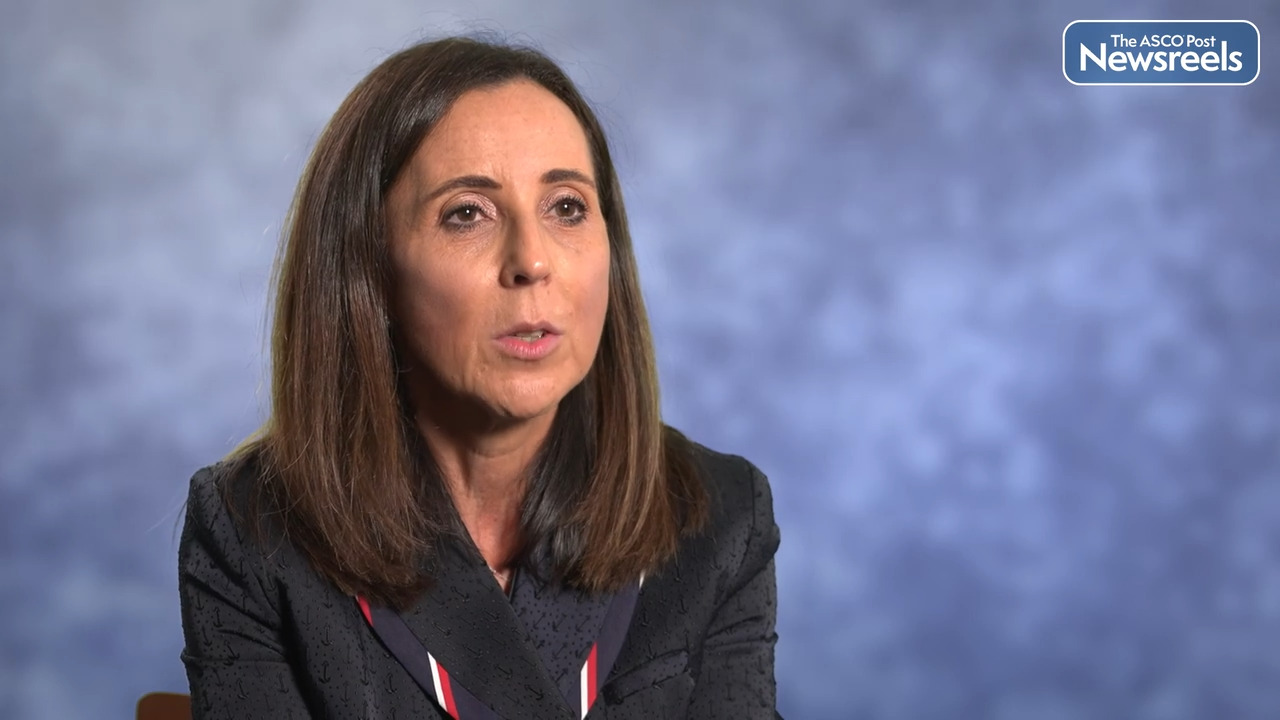Julien Taïeb, MD, PhD, on Colorectal Cancer: Recent Findings on Avelumab vs Standard Second-Line Chemotherapy
ESMO Congress 2022
Julien Taïeb, MD, PhD, of Paris Descartes University, discusses phase II results from the SAMCO-PRODIGE 54 trial, which shows the efficacy and safety of avelumab in the second-line treatment of patients with deficient DNA mismatch–repair microsatellite-instability metastatic colorectal cancer. According to Dr. Taïeb, the study indirectly suggests this population should be treated as soon as possible with an immune checkpoint inhibitor (Abstract LBA23).
Transcript
Disclaimer: This video transcript has not been proofread or edited and may contain errors.
Today we are going to talk about the SAMCO-PRODIGE 54 trial, which is a randomized phase two study dedicated to MSI high metastatic colorectal cancer patients that were treated with an PD-L1 called avelumab or a standout second line therapy. All patients have received only one previous line of treatment and we know that immune checkpoint inhibitors are efficient in the SSI high population in first line. However, there is only one randomized data to date and this is the second one dedicated to second line. So altogether 132 patients were recruited, have treated with avelumab have treated with a standard second-line chemotherapy, plus targeted agent, adapted to their rest status as usual. The primary endpoint of the trial was PFS and the patients were stratified for age ... mutation and number of stats. What we have seen in the result is that the primary endpoint is rich PFS is better in patients treated with the immunotherapy than the one treated with chemotherapy with a targeted agent.
And what happened is that the curves are crossing several time, so it doesn't allow us to think with medians and as a ratio as usually, but we had to use the Q and chin test that is adapted when the shape of the curves is this way. What we can see also is that some patients are immediately resisting to immunotherapy. Some others are resisting within one year, as it was the case in the keynote 177 first line study, and that when the patients are controlled for several months, they are controlled for a very long period of time with approximately 25 to 30% of the patient controlled for more than two years. In this second line setting where generally overall survival are around one year or less. Concerning tolerability, what we have seen is that avelumab is better tolerated than chemotherapy with have less grade three four toxicities, 30% instead of 50% globally.
So it validates the use of an NTP DL-1 or PD-L1 in second line treatment for MSI high colon cancer. However, the primary and secondary resistance occurring during the first care being more important in this trial than in the first line trial. We can say by cross study comparison, but that probably the best. The sooner is the better, and we have to treat this patient as soon as possible. Altogether this is a positive trial that will help us to find a treatment and have scientific data if we see a patient MSI High that has not been previously treated with immunotherapy in second line.
The ASCO Post Staff
Tony S.K. Mok, MD, of The Chinese University of Hong Kong, discusses two late-breaking abstracts presented at ESMO 2022: the phase II SUNRISE study, which compared sintilimab plus anlotinib vs platinum-based chemotherapy as first-line therapy in patients with metastatic non–small cell lung cancer (NSCLC); and the ORIENT-31 trial, which compared sintilimab with or without IBI305 (a bevacizumab biosimilar) plus chemotherapy in patients with EGFR-mutated nonsquamous NSCLC who experienced disease progression on EGFR tyrosine kinase inhibitors.
The ASCO Post Staff
Toni K. Choueiri, MD, of the Dana-Farber Cancer Institute, and Laurence Albiges, MD, PhD, of France’s Gustave Roussy Cancer Centre, discuss phase III findings showing that cabozantinib in combination with nivolumab and ipilimumab reduced the risk of disease progression or death compared with the combination of nivolumab plus ipilimumab in patients with previously untreated advanced renal cell carcinoma of IMDC (the International Metastatic RCC Database Consortium) intermediate or poor risk. However, the combination of cabozantinib, nivolumab, and ipilimumab vs nivolumab plus ipilimumab did not demonstrate an overall survival benefit to patients (Abstract LBA8).
The ASCO Post Staff
Jonathan E. Rosenberg, MD, of Memorial Sloan Kettering Cancer Center, discusses recent findings on the safety and antitumor activity of enfortumab vedotin-ejfv given intravenously as monotherapy or in combination with pembrolizumab to previously untreated cisplatin-ineligible patients with locally advanced or metastatic urothelial cancer (Abstract LBA73).
The ASCO Post Staff
John B.A.G. Haanen, MD, PhD, of The Netherlands Cancer Institute, discusses recent phase III findings, which show that tumor-infiltrating lymphocytes (TILs) improve progression-free survival compared with ipilimumab by 50% in patients with advanced melanoma after not responding to anti–PD-1 treatment. Around 50% of TIL-treated patients had a response, and 20% had a complete response (Abstract LBA3).
The ASCO Post Staff
Ana Oaknin, MD, PhD, of Barcelona’s Vall d’Hebron University Hospital, discusses an analysis of long-term survival from the EMPOWER-Cervical 1/GOG-3016/ENGOT-cx9 trial. Cemiplimab-rwlc is the first immunotherapy to demonstrate an overall survival benefit as a second-line monotherapy for patients with recurrent or metastatic cervical cancer previously treated with platinum-based chemotherapy but not immunotherapy. The benefit was sustained in this population (Abstract 519MO).
